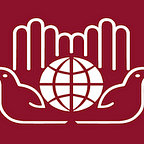Global Innovation Exchange Feature: Fighting Ebola with Information
February 24, 2017, New York City — What can be learned from the use of data, information, and digital technologies, such as mobile-based systems and internet connectivity, during the Ebola outbreak response in West Africa? What worked, what didn’t, and how can we apply these lessons to improve data and information flows in the future?
When the Ebola outbreak hit West Africa in late 2013, the world was caught unprepared. The consequence: over 30,000 Ebola cases, including more than 11,000 dead, and billions of dollars lost across the global system.
In response to the outbreak, USAID joined with communities, governments, and organizations to help affected countries control and, ultimately, contain the disease. As part of celebrating this hard won achievement, the international community must reflect, learn, and act based on this experience to help ensure such a tragedy is not repeated.
This report is a contribution to that end. It focuses on one aspect of the multi-faceted response: the role of data and digital technologies. Grounded in over 130 interviews and peer review, the report surfaces a breadth of experiences and perspectives, and concludes with practical recommendations that health, humanitarian, and development actors should take to be better prepared for the next crisis.
Information was critical to the fight against Ebola. Both for responders, who needed detailed and timely data about the disease’s spread, and for communities, who needed access to trusted and truthful information with which they could protect themselves and their loved ones. Yet, as we now know all too clearly, the technical, institutional, and human systems required to rapidly gather, transmit, analyze, use, and share Ebola-related data frequently were not sophisticated or robust enough to support the response in a timely manner.
We must strengthen these systems. This is essential both to keep pace with diseases that spread with the ferocity and velocity of Ebola, and to be more resilient in the face of future threats.
Although the focus of this report is the need for strengthened capacity, systems, and use of data, we recognize that this alone is not sufficient. Our hope is that these recommendations are incorporated alongside new knowledge of effective public health interventions, preparedness, and priorities for health system strengthening. Ultimately, our willingness to engage these challenges–on a daily basis and within public health systems–will be the best predicator of our success in stopping similar events.
Let us learn from and act upon these lessons to do justice both to those directly affected by Ebola, and to the efforts that ultimately brought to heel one of the most significant health and humanitarian crises of the early 21st century.
This is the Foreword from the new USAID report, Fighting Ebola with Information: Lessons from the Use of Data, Information, and Digital Technologies in the West African Ebola Outbreak Response. The report details key findings and recommendations about the collection, management, analysis, and use of data and information in countering the Ebola outbreak in West Africa in 2014 and 2015. It reveals common sources of the confusing data picture, particularly in the early days of the response and examines the use of digital technologies to support data and information flows, considering both common barriers and insights from what worked.
The report was co-authored by Institute of International Humanitarian Affairs Research Fellow Larissa Fast. Dr. Fast is a Fulbright-Schuman Research Scholar at Uppsala University’s Department of Peace and Conflict Research. Her current research compares the practices of data collection and use on the part of scholars and practitioners, focusing specifically on data collected by and about peacekeepers and aid workers. She is also the author of Aid in Danger: The Promise and Perils of Humanitarian Action.
This article was originally published by the Global Innovation Exchange.
